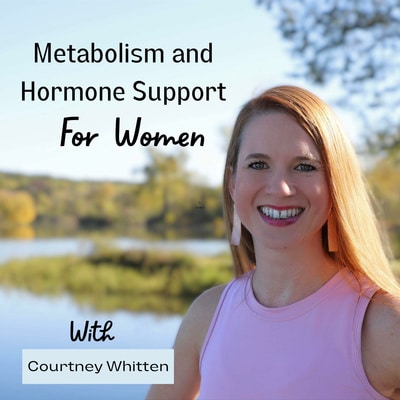Summary of Why Fat Won’t Make You Fat, Training on Keto, and More! by Metabolism and Hormone Support for Women:
*Summary:
1. Doing more is not sustainable long-term and can lead to burnout and exhaustion, as well as neglecting important areas of life.
2. Over-exercising can lead to caloric imbalances, either undereating or overeating, which can hinder progress in body composition and weight loss.
3. Eating a very low-calorie diet can cause metabolic adaptation, slowing down the metabolism and leading to hormonal imbalances.
4. Overdoing it at the gym increases the risk of injury and can lead to chronic muscle soreness, fatigue, and joint pains.
Article:
When it comes to diet and exercise, many of us fall into the trap of thinking that more is better. We believe that if we just push harder, do more workouts, and cut our calories even further, we will see even better results. However, this approach often backfires and can lead to frustrating stalls in progress, burnout, and exhaustion. In this article, we will explore why more is not always better when it comes to improving body composition, health, and fitness.
1. Doing more isn’t sustainable long-term:
While it’s important to have dedication and commitment to our health and fitness goals, pushing ourselves too hard can have detrimental effects on our overall well-being. Spending excessive time on exercise and diet can drain our energy, productivity, and social life. We may end up neglecting important aspects of our lives such as family, work, and relationships. It’s crucial to find a balance that allows us to maintain our progress without sacrificing other areas of life.
2. Caloric intake and output can work against you:
One of the common outcomes of over-exercising is an imbalance in caloric intake and output. This can manifest in either undereating or overeating. Undereating can be problematic as it can lead to the loss of lean muscle mass, hampering exercise performance and recovery. On the other hand, overeating can result in hitting a plateau or even worse, gaining weight and body fat. It becomes a vicious cycle, where our efforts to lose fat are counteracted by our caloric imbalances.
3. Metabolic adaptation:
Eating a very low-calorie diet for extended periods can cause our metabolism to adapt. Our metabolic rate may slow down as a result, making it harder to burn calories efficiently. In addition, reducing our caloric intake can lead to decreased movement and fidgeting, resulting in a decline in caloric output. This can lead to weight and body fat gain, despite our efforts to eat less and exercise more. Furthermore, extreme diet and exercise can disrupt hormonal balance, reducing active thyroid hormone production, decreasing sex hormone production, and elevating adrenal stress hormones like cortisol and adrenaline. These hormonal imbalances can have a significant impact on our body composition, influencing factors such as hunger, energy, cravings, mood, and motivation to exercise.
4. Increased risk of injury:
Overdoing it at the gym can make us more susceptible to injuries. High-intensity training on a daily basis or not taking rest days can lead to chronic muscle soreness, fatigue, and joint pains. When we get caught in this cycle, we may become desensitized to our body’s signals, exacerbating injuries even further. It’s important to listen to our bodies and give them the rest and recovery they need to prevent long-term damage.
In conclusion, the belief that more is better often leads us down a path of burnout, frustration, and stalled progress. Instead of trying to do more, it’s important to find a sustainable balance that allows us to make progress while still enjoying other aspects of life. By nourishing our bodies with the right nutrition, listening to our body’s signals, and incorporating rest and recovery into our routines, we can achieve our goals without compromising our overall well-being.
If you are a woman over the age of 35, have been diagnosed with hormone imbalances such as low thyroid, are struggling with perimenopausal symptoms like weight loss resistance, and want to see changes in your body composition, consider joining my coaching programs. To set up a free discovery session, send me an email at cfitnessonlinetraining@gmail.com. Let’s continue the conversation in my closed Facebook group, Metabolism and Hormone Support for Women, where we can support each other on our health and fitness journeys.

